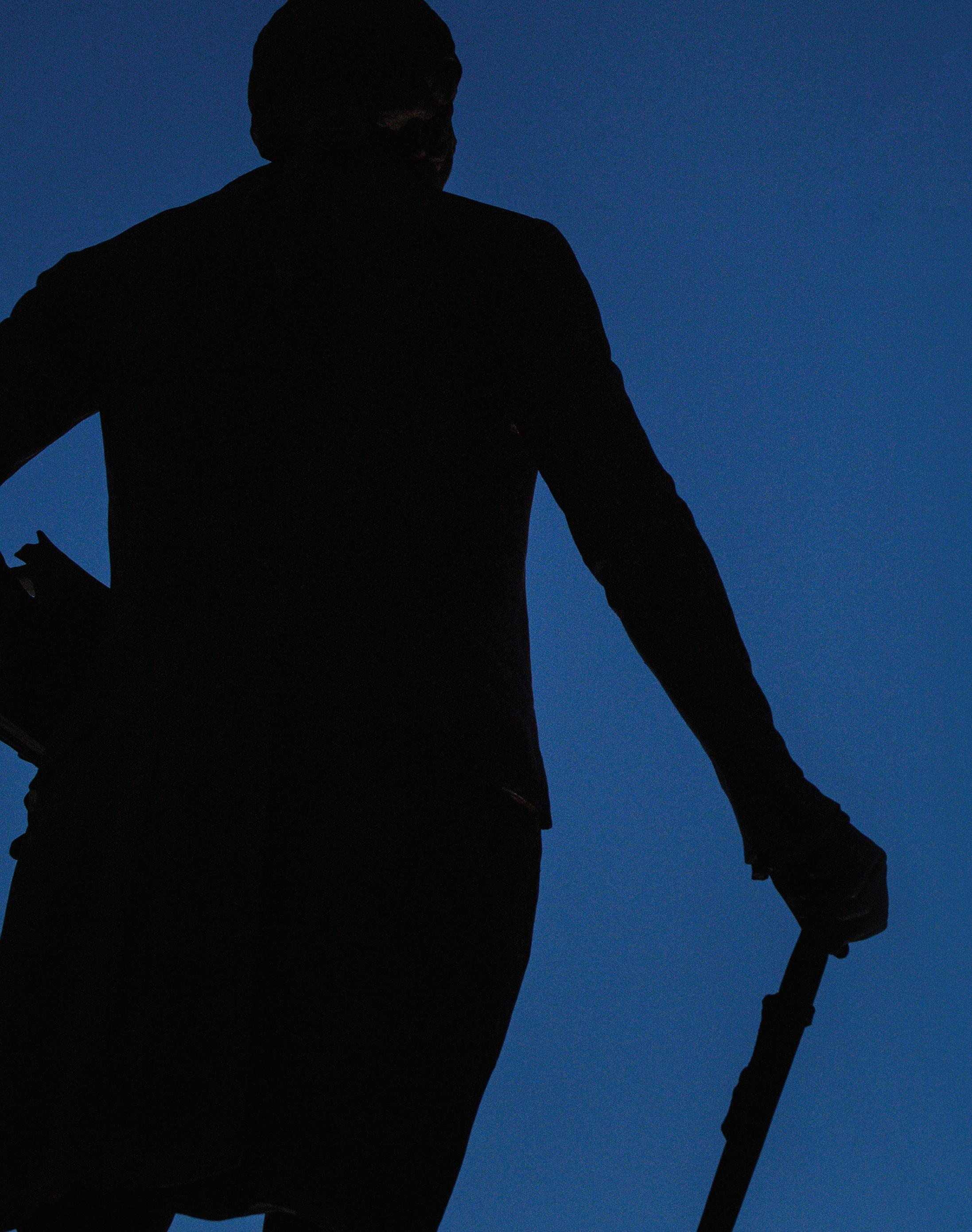
3 minute read
Why I Love Books
BY MARIANNE JANACK, PROFESSOR OF PHILOSOPHY
ANEW YORKER CARTOON about people who love vinyl records shows two middle-aged men standing in front of a big stereo system with large speakers, a turntable, a receiver, and a large cabinet, its shelves full of vinyl records. The caption says: “The two things that really drew me to vinyl were the expense and the inconvenience.”
Though I’m not a vinyl afficionado, I am a fan of books — old-fashioned things made of paper and wood pulp that have to be shelved or stored in a physical space. Bookshelves are ideal, but tables and floors will do, too.
As my students, colleagues, and our department custodian, Kevin, will tell you, my office is a mess. I have a huge desk that I got from the salvage barn (it used to live in the library); I have a round table; I have a metal file cabinet; I have three chairs. All of those surfaces are covered with books and papers.
I just got about 10 more feet of book shelving in my office, but this won’t accommodate all the books that are sitting in boxes on my floor or piled on my desk and tables. I must make hard decisions. Which books to keep? Which to give away?
Some of my students love ebooks for this reason — that and because they’re sometimes cheaper than the paper version. Ebooks don’t take up physical space, and you can read them anywhere you can get an internet connection. No need to lug heavy volumes around; no need to remember to bring the right books to class. Sometimes I envy this generation of students, remembering the semester in my sophomore year of college when I had to haul a huge volume of Shakespeare and an equally huge collection of writings by British philosophers to my classes and to the library, like Sisyphus and his rock.
And so, you might ask (justifiably): what’s to love about physical books? Why not do a Marie Condo and get rid of all that clutter? Like vinyl records, books made of paper — material items that can only be in one place at a time — are inconvenient and expensive. And if you add to this the environmental concerns about paper, the problem becomes even larger. The arguments against materialistic collection seem compelling.
As I was reading in bed last night — a book by a friend of mine — I decided that after I’m finished, I will give the book to one of my students. It’s about a strained motherdaughter relationship, and I know she has had a similar experience; maybe I’ll have the author sign it first. I’ll also write a note in it when I give it to her.
On one of the bookshelves in my office is the volume of the British philosophers that I read in my Modern Philosophy class in 1984. On another is the Norton Anthology of American Literature and The Riverside Shakespeare I read that same semester. They include my notes, written in the margins, and when I look at that handwriting, I am taken back to that time. I still consult them for classes or when I need to be reminded of a line from a poem. I can envision them even now as I think about where they are on my shelves; I can also summon the classrooms in which I sat as a college sophomore listening to a professor talk about what we read. I can see the coffee cup rings and the comments I wrote in the margins (some of them quite stupid, I must admit).
On another bookshelf I have books that came from my bedroom at my parents’ house: Never Tease a Weasel (the first book I read myself); two volumes of Alice in Wonderland (in which I have added my own artistic interpretations); a copy of Rorty’s Philosophy and the Mirror of Nature from the early ’80s and another from 30 years later, with a nicer cover; a copy of Wittgenstein’s Philosophical Investigations that I read in my Wittgenstein seminar in my senior year of college and again in graduate school.
Ebooks might give us the same information as their paper counterparts, but they don’t give us the same reading experience — an experience framed by what’s available, by the heft of the book, by the history of our development as readers and thinkers represented by those material objects that connect us to the past. The unread books sitting on my shelves remind me of what I don’t know, of what I haven’t done yet, of what might still await me, of my own life as a physical thing that ages and changes. n










